Terrorism & Security
NBC's Richard Engel released in Syria, a journalist danger zone
The Syrian conflict is making 2012 the deadliest year on record for journalists.
By Whitney Eulich, Staff writer / December 18, 2012
In this image made from video, NBC News Chief Correspondent Richard Engel exits a car after crossing back into Turkey, after Engel and his team were freed unharmed following a firefight at a checkpoint after five days of captivity inside Syria, in Cilvegozu, Turkey, Tuesday, Dec. 18.
Anadolu via AP TV/AP
The Christian Science Monitor
Weekly Digital Edition
NBC News Chief Correspondent Richard Engel and three members of his production crew were released safely from captivity last night, five days after being kidnapped in Syria, the news network reports. It is unclear who is responsible for the kidnapping, but the episode highlights the dangerous nature of reporting in war-torn Syria, a country the Committee to Protect Journalists (CPJ) dubbed the deadliest place for journalists this year.
NBC reports that Mr. Engel’s captors have not been identified but are “not believed to be loyal to the Assad regime.” Engel and his team went missing after crossing into Syria from Turkey last week, and there had been no communication with the network – neither requesting ransom nor laying claim for the kidnapping – while the team was in captivity.
After entering Syria, Engel and his team were abducted, tossed into the back of a truck and blindfolded before being transported to an unknown location believed to be near the small town of Ma’arrat Misrin. During their captivity, they were blindfolded and bound, but otherwise not physically harmed, the network said.
Early Monday evening local time, the prisoners were being moved to a new location in a vehicle when their captors ran into a checkpoint manned by members of the Ahrar al-Sham brigade, a Syrian rebel group. There was a confrontation and a firefight ensued. Two of the captors were killed, while an unknown number of others escaped, the network said.
Engel and his team have since re-entered Turkey and say they were unharmed in the incident, NBC reports.
Syria’s conflict began in March 2011 after a government crackdown on protests calling for President Bashar al-Assad to step down. The violence has spiraled into a bloody civil war that has claimed the lives of close to 40,000 people and displaced hundreds of thousands of people, according to the United Nations refugee agency.
Think you know the Middle East? Take our quiz.
But, according to The Wall Street Journal, “the multiplying of militias on both sides of the conflict has quickly and vastly complicated the scenarios for how fighting might end or a political transition may be negotiated, and what may come next after the end of the regime.”
"The civilian militias to come out of this conflict are going to make Hezbollah [in Lebanon] look like a walk in the park," Joseph Holliday, a senior research analyst at the Institute for the Study of War in Washington, told the Journal. Syria is not simply seeing a faceoff between government forces and rebel fighters, but the involvement of Al Qaeda-linked fighters and Iranian militants have also been noted.
Get our FREE 2013 Global Security Forecast now
CPJ projects that 2012 will be the deadliest year yet for journalists, with 67 journalist deaths registered through mid-December alone. The high numbers are in large part attributed to the conflict in Syria and how it has impacted local and international journalists trying to report there. Four international journalists were killed in Syria in 2012, but the majority of the 28 journalists killed there this year were local reporters, largely working online.
“This feels like the first YouTube war,” BBC Middle East correspondent Paul Wood told CPJ. “There’s a guy with a machine gun and two guys next to him with camera phones.” Mr. Wood added that local journalists are facing multiple risks. “We’ve seen pro-regime journalists targeted by rebels – it is well known. But opposition journalists say the regime is intent on targeting them as journalists.”
The number of fatalities related to the Syrian conflict approached the worst annual toll recorded during the war in
Iraq, where 32 journalists were killed in both 2006 and 2007.
Paul Wood … who covered Iraq and numerous other wars, said the Syrian conflict “is the most difficult one we’ve done.” Bashar al-Assad’s government sought to cut off the flow of information by barring entry to international reporters, forcing Wood and many other international journalists to travel clandestinely into Syria to cover the conflict. “We’ve hidden in vegetable trucks, been chased by Syrian police – things happen when you try to report covertly.”
With international journalists blocked and traditional domestic media under state control, citizen journalists picked up cameras and notepads to document the conflict – and at least 13 of them paid the ultimate price. One,
Anas al-Tarsha, was only 17 years old. At least five of the citizen journalists worked for
Damascus-based
Shaam News Network, whose videos have been used extensively by international news organizations.
In addition to the rise of Internet journalism, there are other factors like “relatively cheap flights to some of the world’s trouble spots” and “shrinking budgets for foreign news” that “have dramatically reduced barriers to entry for would-be foreign correspondents,” reports the BBC.
For organisations working to improve the safety of journalists it’s a cause for increasing concern.
“There’s something of a worrying trend developing,” says
Hannah Storm, director of the
International News Safety Institute. “I’m hearing it from people that have recently graduated. I’m seeing it on
Facebook. And I see it sometimes when I talk to students in universities.
“It feels like now in places like Syria there are more and more people in their early or mid-20s with little or no experience - but with an overriding enthusiasm which makes them want to go out there and make a name for themselves, without taking the realities on board.”
"More and more of those journalists are freelancers because of the nature of the changing field," El Zein says, referring to the rise in the number of freelancers reporting in dangerous places, traditionally more a world for journalists on the staff of major publications.
"Especially in Syria, the risks are very high for journalists, and a freelancer going in there without any support structure – it can be very risky and daunting."
The Christian Science Monitor’s Tom Peter has been in and out of Syria over the course of the past few months and noted other distinct differences in reporting from Syria compared to other conflict zones in the past. “With Aleppo just a two-hour drive from Kilis [Turkey], many journalists have opted to drive into Syria each morning and return to Turkey to write stories and sleep. Not only is it safer, but electricity and Internet access are a sure thing,” he writes.
The commute made my job of writing and filing stories easier, but it also made for a surreal reporting experience. In one afternoon, I might find myself taking cover as windows blew out around me in a bombing. By that evening, I'd be back in Kilis getting my hair cut in a barbershop where a miscommunication led to an accidental mud facial mask.
I've always thought the hardest part of conflict journalism is the anxiety you feel before and after an assignment. When you're navigating a war, you're too busy to think about the what-ifs. Commuting in and out every day creates one of the strangest cycles of stress and decompression I've ever experienced.




 Reply With Quote
Reply With Quote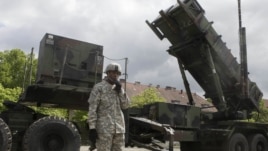 NATO's Patriot surface-to-air missiles
NATO's Patriot surface-to-air missiles




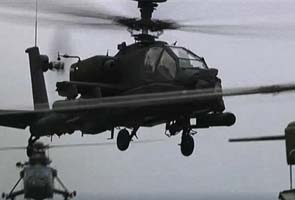



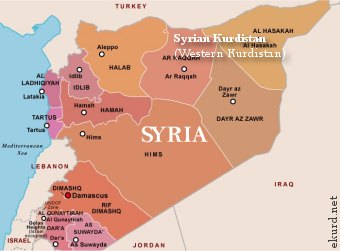
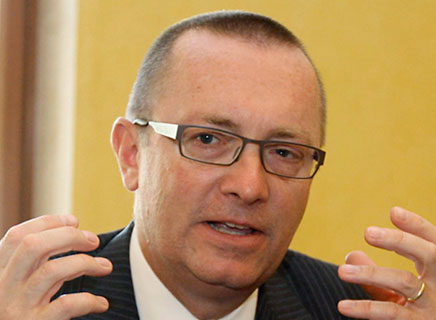


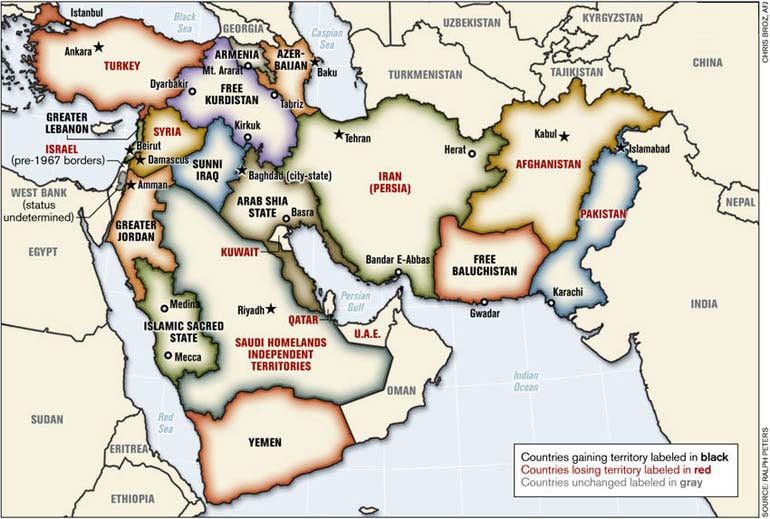


Bookmarks